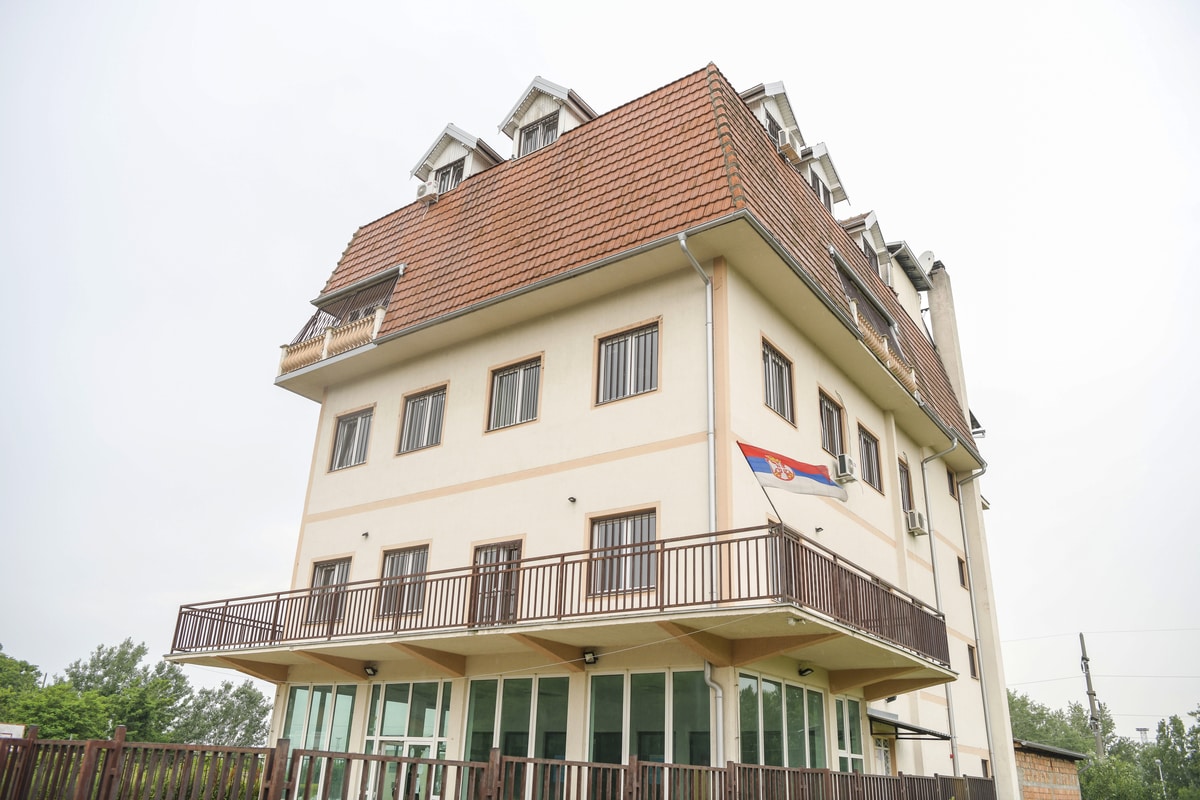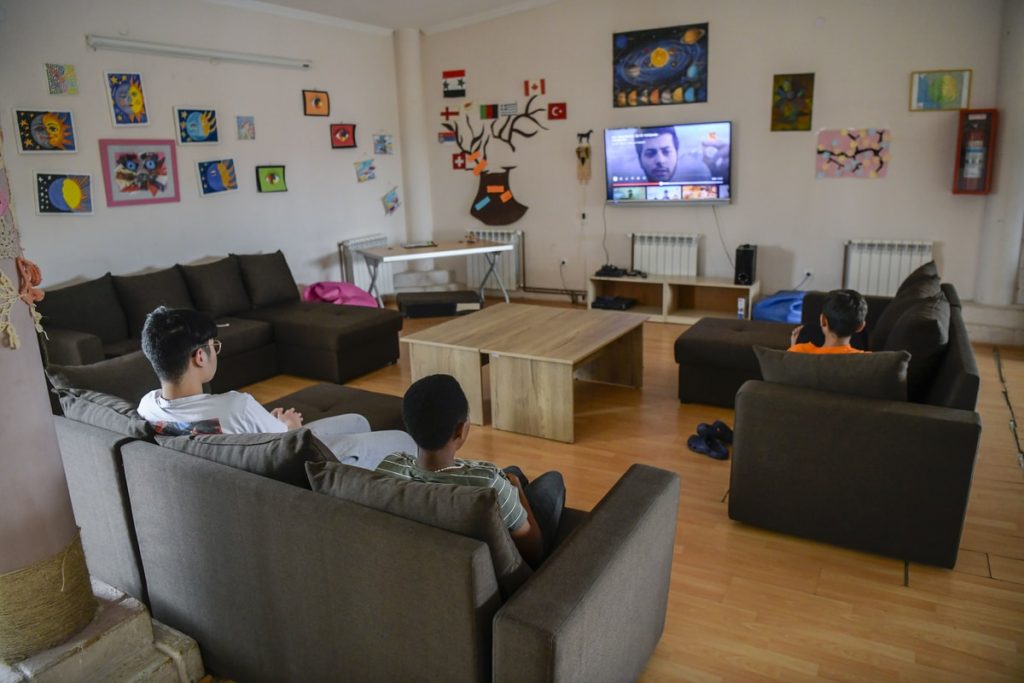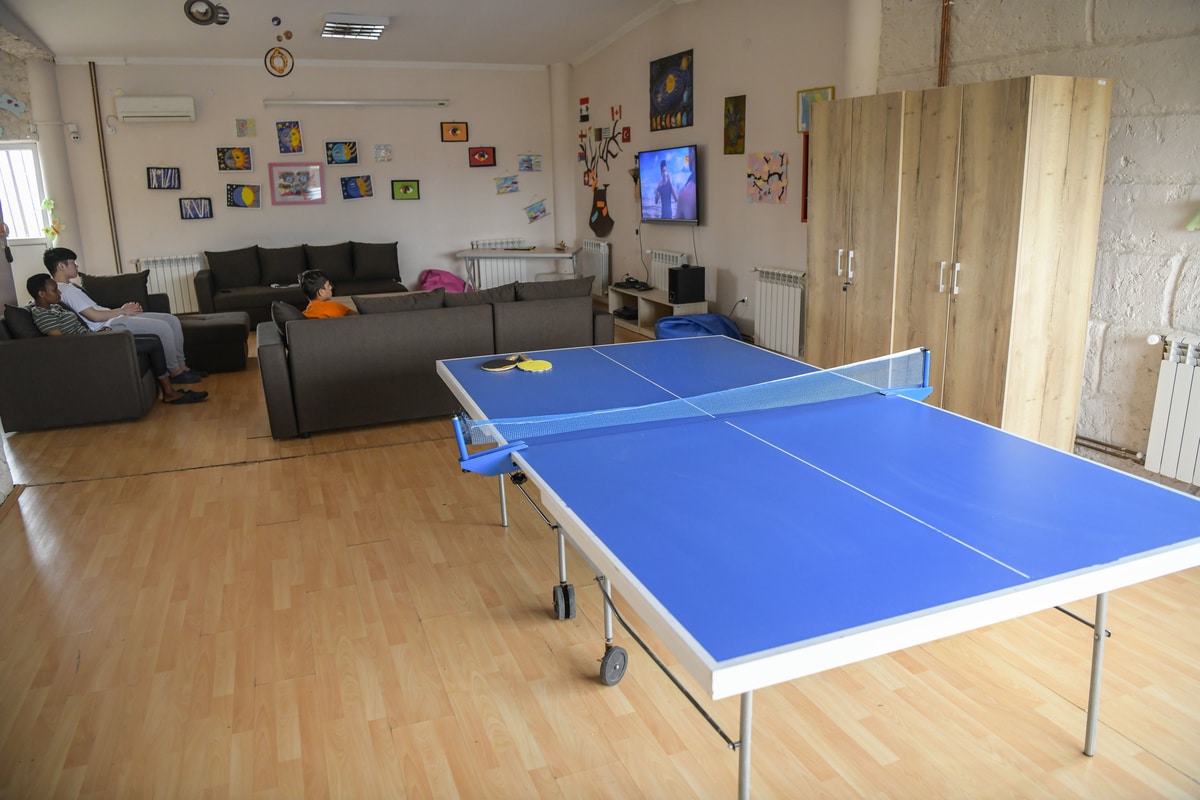Yusuf was 15 years old when he went into exile from his native Afghanistan alone, without his parents or any other escort, and he could not imagine that he would stop in Serbia on his way to Western Europe and become an adult there.
Silent, scowling just enough not to be rude, but to make it clear that he prefers not to be bothered with questions, Yusuf found his peace in the Center for the Accommodation of Foreign Minors within the Institute for the Education of Children and Youth in Belgrade, where, along with with the whole-hearted help of the teacher, but also with the help of others from the team, he patiently tries to build a career as an IT expert.

Jusuf is finishing the third year of high school and is already planning to continue his education in Belgrade at an IT faculty.
He left Afghanistan “for private reasons”. That’s about all he’ll tell you, although, regarding the undisputed intelligence of the future programmer, he doesn’t try to hide the fact that the war in his homeland is a dominant part of everyday life.
The mother and sister found refuge in Turkey, but all other relatives are still in Afghanistan. He is regularly in contact with them and they are, Yusuf explains, – good.
Anita Buzejić Šubarić, the director of the Institute for the Education of Children and Youth, which houses the Center for the Accommodation of Foreign Minors, says apart from Jusuf, there are currently four boys and two girls between the ages of nine and 15 who, in addition to Afghanistan, have fled to the Center from Syria, Burundi, and China.
She says that most children who headed towards Western Europe on their own, most adult migrants as well, just want to pass through Serbia, but there are those who are like Yusuf, who want to get an education and stay to live and work in our country.
She explained that the competent center for social work refers unaccompanied refugee children to the Center, where they are further placed in covid isolation with a negative PCR test and the prescribed number of days.
Upon arrival, and most often before that, the Center for Social Work assigns a professional guardian to the child, who takes care of the child on behalf of the state. Educators, and workers of this social welfare institution who are trained to work with these children, take care of them. Educators are of particular importance because they help each child upon arrival in the process of adaptation to the institution, as well as the preparation of the group for the reception of a new child.

Childcare is always divided between the Center for Social Work, which is the guardianship authority, and the social welfare institution where the child is placed which takes care of the child’s daily needs and provides services in accordance with the program established by the Center for Social Work together with the institution.
Educators take children to school, to the doctor, help them with their homework, hold workshops, help collect the necessary documentation and participate in the children’s conversations with the social workers who handle their cases and with the guardians assigned to them.
Each child is treated individually and they are cared for by educators whose work, as well as the entire functioning of the institution, is financed within the framework of the European Union’s support for migration management in the Republic of Serbia.
However, despite all this concern, unaccompanied refugee children are exposed to some very serious inconveniences.
“Children very often feel the pressure of their families to continue their journey and additionally expose themselves to risk and to cross borders illegally. Later, if they succeed in this, they are required to support their families who remain in their homeland. Most often, the oldest child in the family is sent so that he can send money and move his family to one of the countries of Western Europe,” explains Buzejić Šubarić.
Whether in order to avoid similar problems or simply because of his undisturbed modesty, Yusuf refuses to be photographed, he does not agree to the blurring of his face, nor to being photographed in the shadows, from behind – nothing.
He remains true to the anonymity characteristic of programmers and insists on remaining “invisible” like the computer applications he will work on, which ordinary computer users cannot even imagine exist, but which turn their monitors from lifeless black panels into fantastic imaginary worlds.
Biljana Zoranović Avlijaš, head of the Center for Accommodation of Foreign Minors, explains how much the apprehension of migrant children who set out on their own for a long, uncertain, and dangerous journey is justified.
“A 12-year-old boy from Afghanistan was in the Center for several months, and until he enrolled in school in Belgrade, he wanted to continue to Western Europe. However, the moment he called his family on the phone and told them what he was up to, his father ordered him to continue his journey, and even found a smuggler to lead him on,” says Zoranović Avlijaš.
She cites examples of some countries where advertisements are openly broadcast on television inviting people to move to Western Europe. Of course, this “service” is paid for, and then parents from large families choose a child, usually the oldest, to go to Europe. According to the already known scenario, reminds Zoranović Avlijaš, smugglers gather about twenty people, and maybe a quarter of them reach Europe. It also indicates that children passing through various countries encounter great problems. They hike a lot and arrive in Serbia exhausted and tired, very often with injuries, skin infections, or other health problems that happen to them on the way.
“There were cases when children were so lousy that they had to be referred to specialized hairdressing salons, which solved it during several treatments,” says Zoranović Avlijaš.
But even when such a problem is finally solved, it often turns out that this is not the end of the children’s troubles, because some parents, due to the very difficult economic situation and the poverty in which they live, simply have no choice and insist that the children continue their journey to Western Europe in order to provide as much as possible for the whole family – such a dignified life.
A boy with a serious spinal injury appeared in the Center, who could not get out of his wheelchair without the help of others, nor bathe, or take care of himself, but after a month of staying in the Center, due to pressure from his parents, he asked to leave to the “game”, i.e. the irregular border crossing organized by smugglers and which, as the name suggests, is literally an all-or-nothing “game” with the lives of those children. It happened that the child returned to the Center after a few days from the “game”, hungry and dirty, and when asked where he was, he answered – “in the refrigerator”, which means that smugglers tried to take him across the border in a refrigerator.
There is no end to the series of stories that few would believe if they were not told by professionals, dedicated social workers. One boy, previously housed in the Center, had to wear a catheter due to illness that had to be changed once a week, so in order to explain to his parents that he wasn’t really fit for the further journey to Western Europe, he had to send them a photo of himself in front of the hospital as a proof.

Uroš Živković, the coordinator of projects for the social protection of migrants of the Ministry of Labour, Employment, Veterans and Social Affairs, emphasizes that Serbia, precisely because of the described challenges faced by unaccompanied migrant children, has developed a special form of support from the social protection system, and these are namely field workers in reception and asylum centers.
“Children enter the Center only with their own consent, no one is brought by force, and the child is free to leave the Center whenever he wants. Sometimes it is very difficult to persuade these boys and girls that it is in their interest to be accommodated in the Center because they do not want to be separated from the group for fear of missing the chance to cross the border and head further toward Western Europe. That is why minor refugees who travel unaccompanied are considered the most vulnerable category, and that is why the Council of Europe and UNICEF have special rules for dealing with them, and all these rules are not only applied in Serbia but have also been improved,” said Živković.
How well Serbia has worked with the support of the European Union is best witnessed by the quiet Jusuf, who, because of the good reception, not only decided to stay and study in Serbia but also likes to be called Zoran. His success is visible also because he steadily plans his future without war, not forgetting his native Afghanistan, but also looking forward to his new home in Serbia.